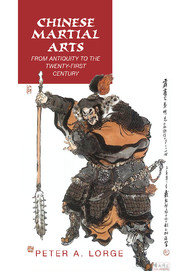Book contents
- Frontmatter
- Contents
- Preface and Acknowledgments
- Introduction
- 1 From the Stone Age to the End of the Spring and Autumn Period
- 2 The Warring States Period
- 3 The Qin and Han Dynasties
- 4 The Six Dynasties
- 5 The Sui and Tang Dynasties
- 6 The Five Dynasties and Ten Kingdoms and the Song Dynasty
- 7 The Yuan Dynasty
- 8 The Ming Dynasty
- 9 The Qing Dynasty
- 10 Post-Imperial China
- Conclusion
- Notes
- Bibliography
- Index
10 - Post-Imperial China
Published online by Cambridge University Press: 05 December 2011
- Frontmatter
- Contents
- Preface and Acknowledgments
- Introduction
- 1 From the Stone Age to the End of the Spring and Autumn Period
- 2 The Warring States Period
- 3 The Qin and Han Dynasties
- 4 The Six Dynasties
- 5 The Sui and Tang Dynasties
- 6 The Five Dynasties and Ten Kingdoms and the Song Dynasty
- 7 The Yuan Dynasty
- 8 The Ming Dynasty
- 9 The Qing Dynasty
- 10 Post-Imperial China
- Conclusion
- Notes
- Bibliography
- Index
Summary
Many Chinese began to despair over the condition of China well before the Qing Dynasty collapsed in 1911. It had been apparent since perhaps the Opium War (1839–42) that the Qing imperial army was in decline and that Qing military practice had fallen behind Western military practice. Increasing emphasis on Western military technology and techniques brought radical changes to the Qing military, and by the end of the dynasty it had formed completely Western-style armies outfitted with the latest Western equipment. Chinese soldiers, like their Western counterparts, still practiced some hand-to-hand combat skills, particularly the use of rifles with bayonets, but for many soldiers and officers, traditional Chinese martial arts had become obsolete. Rifles and artillery decided battles, not spears and swords.
Of course, this dichotomy was more imagined than real. The Qing army had relied upon cannon and firearms in its wars for centuries. Western military technology had been absorbed into the Qing military as it became available over the course of the nineteenth century, and indeed even before that during the late Ming Dynasty. The break with the past in the martial arts was thus much more psychological or ideological than actual. Western armies were clearly more powerful than Qing armies, and for reasons beyond technology. Focusing on technology, however, allowed the possibility of somehow adopting a material part of Western culture while leaving Chinese or Manchu culture in place. Many, perhaps most, Chinese were convinced of the value, even superiority, of Chinese culture. Few were willing simply to abandon it and adopt Western culture. The military weakness of the Qing Dynasty, and even the subsequent Western-style Republican government’s army, as compared with Western armies, was all too clear.
- Type
- Chapter
- Information
- Chinese Martial ArtsFrom Antiquity to the Twenty-First Century, pp. 212 - 237Publisher: Cambridge University PressPrint publication year: 2011



